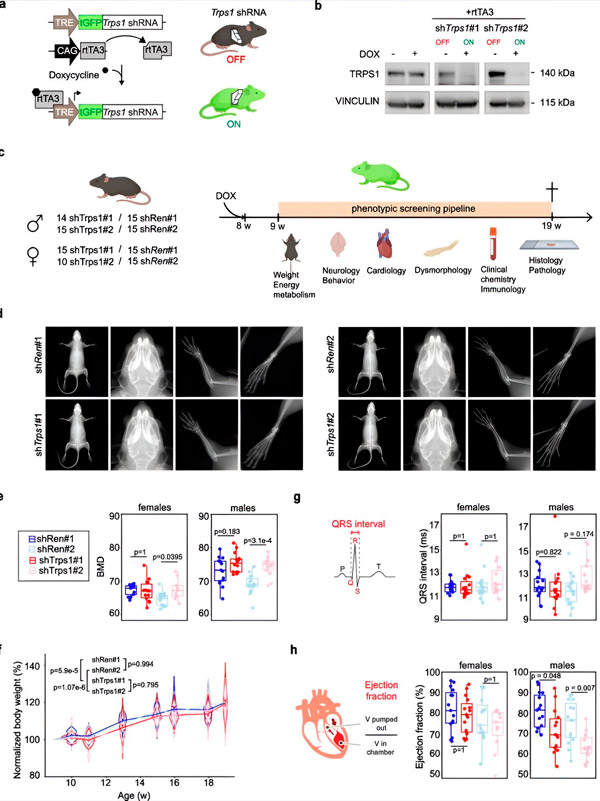Study finds new target for breast cancer drugs
Sist anmeldt: 14.06.2024

Alt iLive-innhold blir gjennomgått med medisin eller faktisk kontrollert for å sikre så mye faktuell nøyaktighet som mulig.
Vi har strenge retningslinjer for innkjøp og kun kobling til anerkjente medieområder, akademiske forskningsinstitusjoner og, når det er mulig, medisinsk peer-evaluerte studier. Merk at tallene i parenteser ([1], [2], etc.) er klikkbare koblinger til disse studiene.
Hvis du føler at noe av innholdet vårt er unøyaktig, utdatert eller ellers tvilsomt, velg det og trykk Ctrl + Enter.

Breast is a complex tissue consisting of many types of cells. Its proper functioning is extremely important for breast health. Among the many factors regulating cellular homeostasis in the mammary gland, the transcription factor TRPS1 has received special attention in recent years.
A recent study provides important insights into the role of TRPS1 in the maintenance of luminal progenitor cells in the mammary gland. The senior author of the study is Bjorn von Eyss, head of the research group "Transcriptional regulation of tissue homeostasis" at the Leibniz Institute for Aging-Fritz Lipmann Institute in Jena.
The article "TRPS1 Maintains Luminal Progenitors in the Breast by Inhibiting SRF/MRTF Activity" was published in the journal Breast Cancer Research.
TRPS1 is a gene that plays a key role in the maintenance of certain cells in the mammary gland. It inhibits specific proteins, thus helping to control the differentiation of these cells. Previously, von Eyss's research group had clarified the role of TRPS1 in breast cancer, but the function of TRPS1 in normal tissue remained largely unclear.
Because TRPS1 is important for the growth of many types of breast cancer, scientists have now explored whether inhibiting TRPS1 could be a strategy for future therapies. In a mouse model, they studied how the body responds to TRPS1 inhibition throughout the body, aiming to model anti-TRPS1 therapy.

Widespread reduction of TRPS1 does not affect viability. Source: Breast Cancer Research (2024). DOI: 10.1186/s13058-024-01824-7
A study conducted by Jena scientists showed that TRPS1 could serve as a new target for drugs against breast cancer. "Mice in which TRPS1 was knocked out did not show significant changes, indicating that potential TRPS1-inhibiting drugs are likely to be well tolerated," says von Eyss.
In addition, the team led by first author Marie Tollot found that TRPS1 is required for the maintenance of luminal progenitor cells. This is an important discovery because this cell type is now believed to be the source of most breast tumors and their numbers increase significantly with age.
Von Eyss adds: “The next step could be to develop specific substances that affect the function of TRPS1. Most importantly, TRPS1 has already been established to be safe from an organ toxicity point of view, that is, it does not cause harmful effects on organs when inhibited in the body This is an important aspect in assessing the safety and potential applications of TRPS1 in medical research and therapy."
